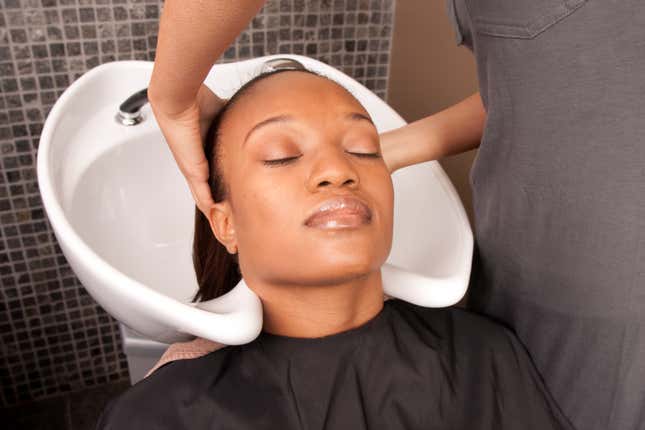
Most people want to look like a million dollars. But no one actually wants to spend that much on their beauty routine.
A report from the UK-based beauty website Treasure Tress found that Black Brits share the same struggle we face in the United States, being largely ignored by the mainstream beauty industry and spending more than our white counterparts on the products we need to look our best.
Treasure Tress was created to help Black women and girls find the hair products that work best for them. And their report, “The Untapped Opportunity in the UK Afro Hair Market,” found that products made for people with naturally textured hair (AKA people of color) are generally more expensive than products made for the mainstream (AKA everyone else).
“Now with six years of Treasure Tress serving a community of over 50,000 customers, and hair enthusiasts across UK, Europe and beyond, it is time to home in on a previously ignored UK market, and share key insights, predictions and advice for key stakeholders,” said beauty entrepreneur and Treasure Tress founder Jamelia Donaldson.
Nearly 40 percent of the women included in the Treasure Tress study say they are forced to go to specialty shops to find hair products that work for them. And as a result, they are being subjected to a hidden texture tax. For example, a Black woman quoted in the 2022 Black Pound Report, which looks at spending among people of color, noted the disparity in the cost of a bottle of shampoo. “You can probably find a general shampoo or conditioner like Herbal Essences for £1-£2 but products like As I Am or Black Castor Oil Shampoo that help Afro or kinky hair are like £8-£10 for a bottle half the size,” she said.
About 50 percent of the women included in the study said they feel most mainstream hair products on the market just aren’t made with them in mind. And as Donaldson points out, brands aren’t making much of an effort to connect with Black customers.
“Catering to textured hair is relatively new to many brands, but I don’t believe it’s being given the attention or funding it deserves in its entirety,” she says.

